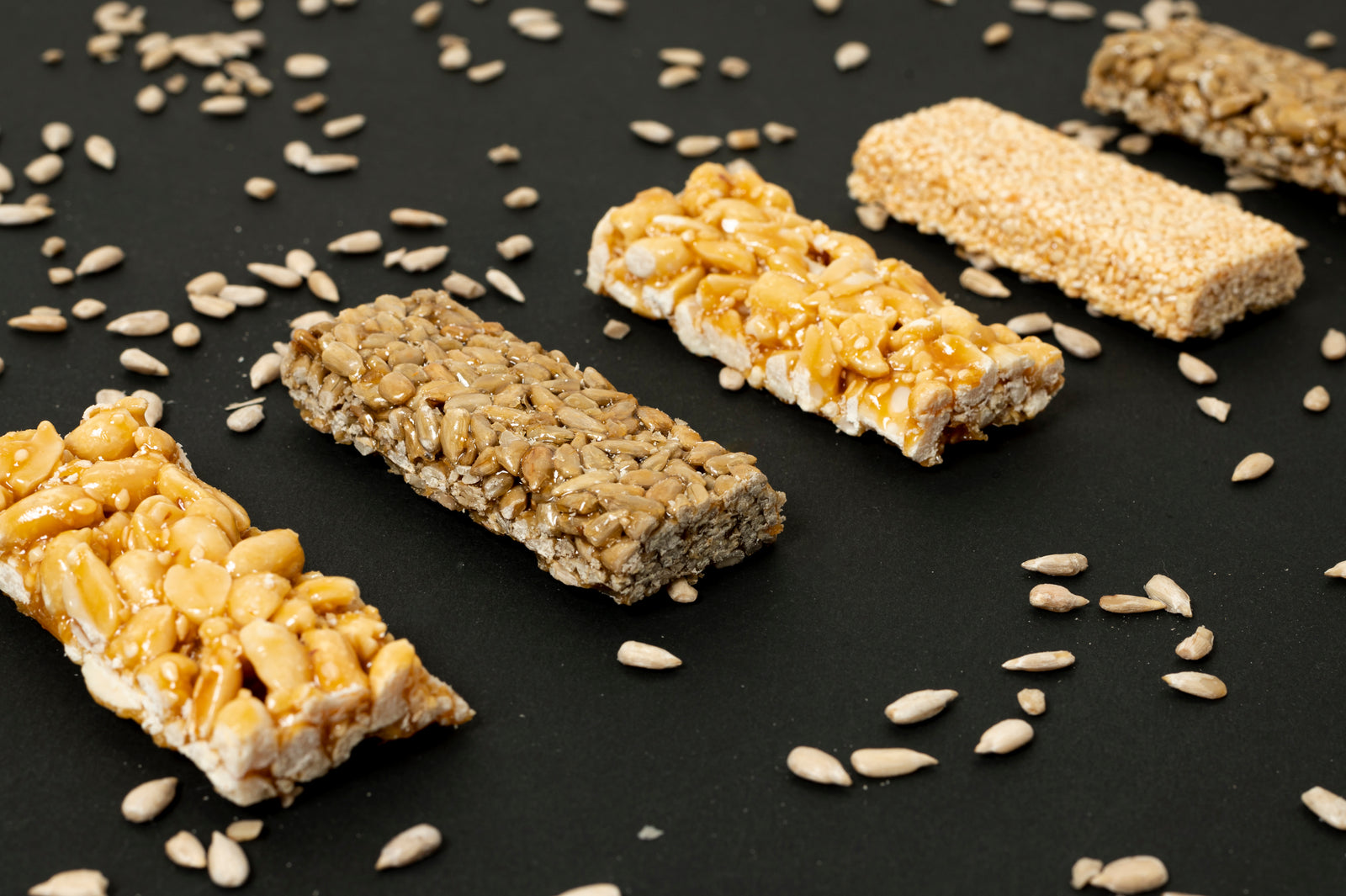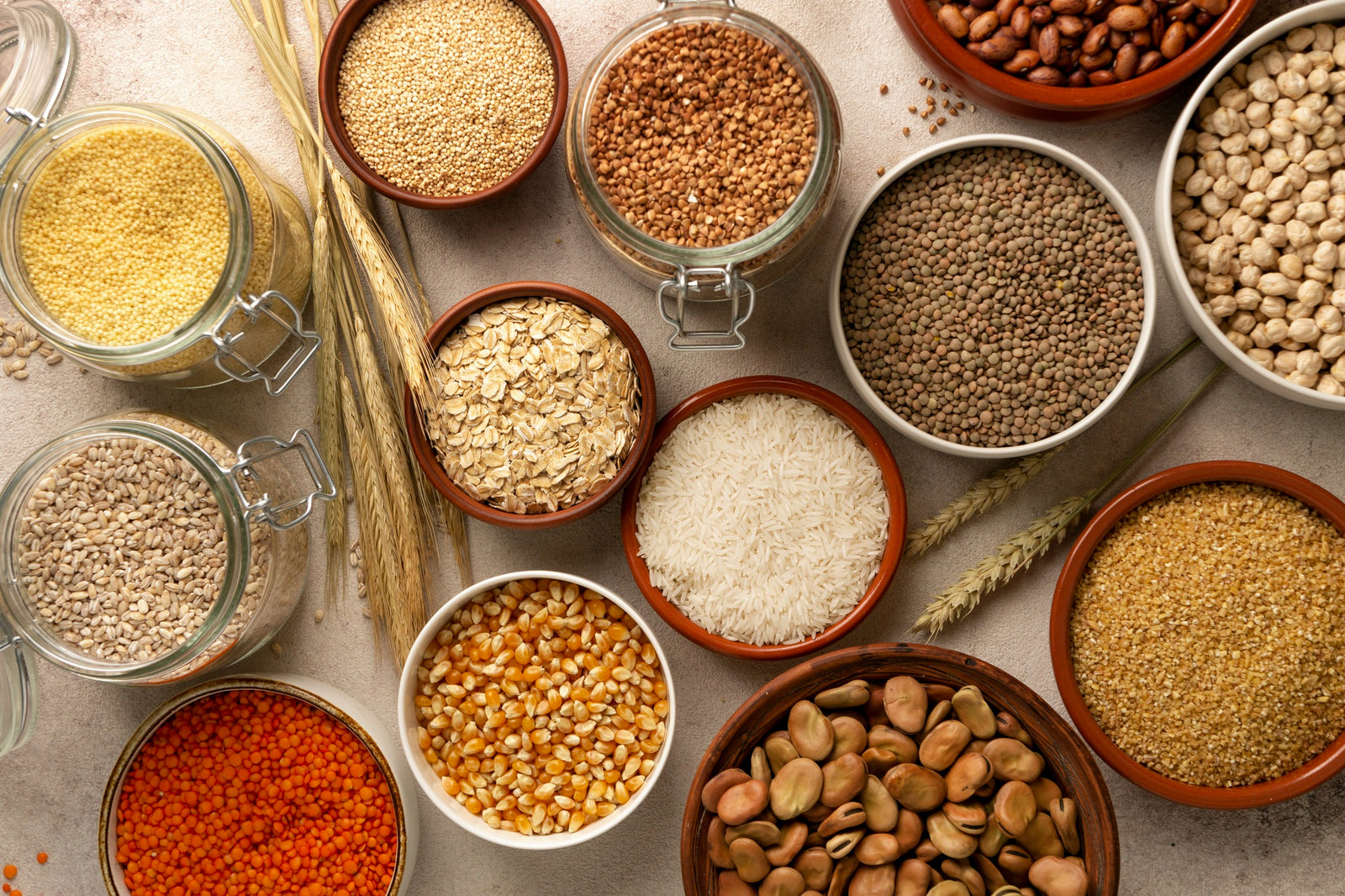
February 21, 2024 2 min read
Flaxseed and chia seeds have gained popularity as nutritional powerhouses, each offering a unique set of health benefits. Let's explore their individual contributions to your well-being.
Flaxseed: A Rich Source of Omega-3s and Antioxidants
Flaxseed stands out for its high content of alpha-linolenic acid (ALA), a plant-based Omega-3 Fatty Acids. Omega-3s are renowned for their role in supporting heart health, reducing inflammation, and promoting brain function. Additionally, flaxseed is a rich source of lignans, antioxidants that contribute to overall well-being and may have protective effects against certain cancers.
Incorporating flaxseed into your diet is easy. Ground flaxseed can be sprinkled on cereals, added to smoothies, or used as an egg substitute in baking, providing a subtle nutty flavor and a nutritional boost.

Chia Seeds: Versatile and Nutrient-Dense
Chia seeds have gained superfood status due to their impressive nutrient profile. These tiny seeds are loaded with omega-3 fatty acids, fiber, protein, and essential minerals like calcium and magnesium. One standout feature of chia seeds is their ability to absorb liquid, forming a gel-like consistency. This makes them a versatile ingredient in various recipes, such as chia pudding or as a thickening agent in smoothies and soups.
The omega-3 fatty acids in chia seeds include both ALA and docosahexaenoic acid (DHA). DHA is particularly crucial for brain health and has been linked to cognitive function.
While both flaxseed and chia seeds provide essential omega-3 fatty acids, they differ in their composition. Flaxseed primarily offers ALA, while chia seeds offer a combination of ALA and DHA. DHA is a form of omega-3s that is directly beneficial for brain health.
Fiber Content for Digestive Health:
Both seeds are rich in dietary fiber, promoting digestive health and providing a sense of fullness. Including flaxseed or chia seeds in your diet can aid in regular bowel movements and support weight management.
Antioxidant-Rich Properties:
Both flaxseed and chia seeds contain antioxidants, contributing to their disease-fighting potential. These antioxidants help neutralize free radicals, reducing oxidative stress and inflammation in the body.

Flaxseed: Sprinkle ground flaxseed on yogurt, add it to smoothies, or use it as an egg substitute in baking.
Chia Seeds: Create chia pudding by soaking them in liquid, add them to oatmeal, or incorporate them into baked goods for a nutrient boost.
In the flaxseed vs. chia seeds debate, the right choice depends on your nutritional preferences and health goals. Both seeds offer valuable nutrients and can be easily integrated into a balanced diet. Whether you favor the nutty flavor of flaxseed or the gel-like texture of chia seeds, incorporating these seeds into your meals can enhance your overall nutrition and contribute to a healthier lifestyle.
❤ Try our USDA certified organic Flaxseed and Chia Seeds❤
Related blogs:
Comments will be approved before showing up.

May 08, 2024 2 min read
Discover quick and nutritious grain-based snacks perfect for busy lifestyles. From no-bake oatmeal energy balls and quinoa crunch bars to savory millet muffins and homemade wheat thins, these easy-to-prepare snacks offer a healthy, satisfying way to stay energized on the go. Whether you're craving something sweet or savory, there's a grain-based snack here for everyone.

May 06, 2024 2 min read

May 01, 2024 3 min read
This article explores the differences between cane sugar and beet sugar, from their production processes to environmental impacts, highlighting why understanding these distinctions is crucial for making informed decisions about food consumption and sustainability.
© 2024 Be Still Farms- Real, Fine Organics.
Privacy | Terms | Refund Policy | Organic Certification
